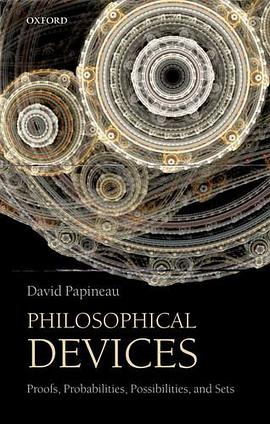Philosophical Devices
Douban
Proofs, Probabilities, Possibilities, and Sets
David Papineau
overview
This book is designed to explain the technical ideas that are taken for granted in much contemporary philosophical writing. Notions like "denumerability," "modal scope distinction," "Bayesian conditionalization," and "logical completeness" are usually only elucidated deep within difficult specialist texts. By offering simple explanations that by-pass much irrelevant and boring detail, Philosophical Devices is able to cover a wealth of material that is normally only available to specialists.
The book contains four sections, each of three chapters. The first section is about sets and numbers, starting with the membership relation and ending with the generalized continuum hypothesis. The second is about analyticity, a prioricity, and necessity. The third is about probability, outlining the difference between objective and subjective probability and exploring aspects of conditionalization and correlation. The fourth deals with metalogic, focusing on the contrast between syntax and semantics, and finishing with a sketch of Godel's theorem.
Philosophical Devices will be useful for university students who have got past the foothills of philosophy and are starting to read more widely, but it does not assume any prior expertise. All the issues discussed are intrinsically interesting, and often downright fascinating. It can be read with pleasure and profit by anybody who is curious about the technical infrastructure of contemporary philosophy.
Features
A clear, concise explanation of key technical ideas in philosophy
An invaluable resource for students
Stimulating and entertaining--works to improve the reader's argumentative skills
No prior knowledge assumed--will be of interest to anyone who wants to understand contemporary philosophy
contents
Preface
Introduction
Part I: Sets and Numbers
1. Naive Sets and Russell's Paradox
2. Infinite Sets
3. Orders of Infinity
Part II: Analyticity, a prioricity, and necessity
4. Kinds of Truths
5. Possible Worlds
6. Naming and Necessity
Part III: The Nature and Uses of Probability
7. Kinds of Probability
8. Constraints on Credence
9. Correlations and Causes
Part IV: Logics and Theories
10. Syntax and Semantics
11. Soundness and Completeness
12. Theories and Godel's Theorem